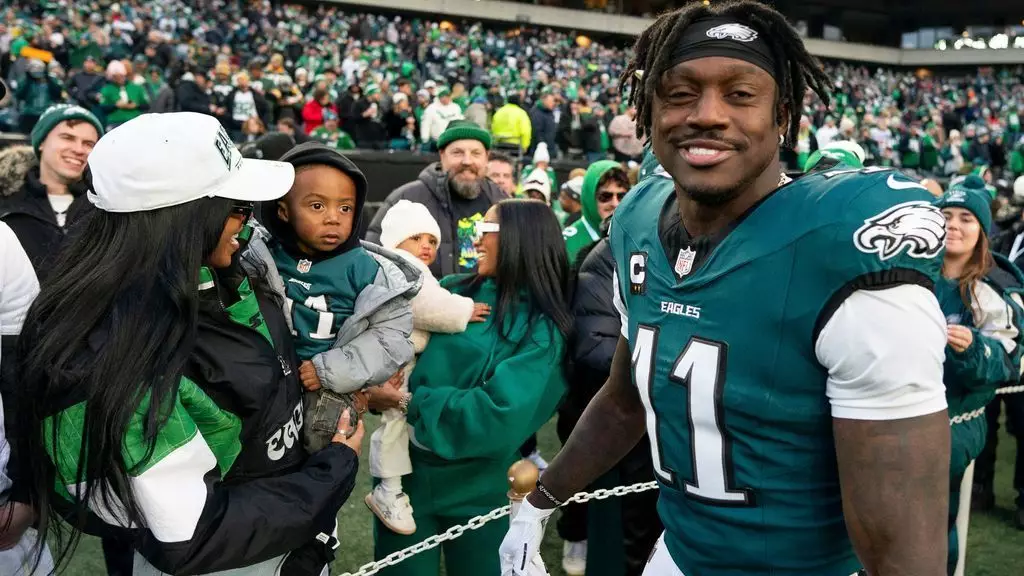In the high-stakes environment of playoff football, every action by players is scrutinized, often leading to speculation. Recently, during the Philadelphia Eagles’ convincing 22-10 victory over the Green Bay Packers in the wild-card round, wide receiver A.J. Brown was seen reading a book on the sidelines—a sight that generated significant conversation among fans and analysts alike. Questions arose about the motives behind his reading: Was he frustrated with his lack of involvement in the game? Was the act a signal of emotional distress? These speculations, while common in the world of sports, often overlook the psychological resilience that athletes like Brown cultivate.
A.J. Brown identified the book he was reading as “Inner Excellence” by Jim Murphy, a work aimed at enhancing mental performance and achieving personal fulfillment. The idea of reading during a game might seem counterintuitive to some; however, for Brown, it is an established part of his pre-game and in-game routine. He explained that his choice to read is not indicative of frustration, but rather a method for regaining focus amid the chaos of competitive sports. This aspect of sports psychology emphasizes the importance of mental clarity for performance, showcasing that athletes are not mere physical specimens but also mental warriors.
While Brown’s sideline reading may have appeared controversial, it also serves as a reminder of the pressures athletes face, particularly during the playoffs. It was revealed that he had been dealing with a knee issue leading up to the game, which caused him to miss practice days. Such physical stressors can impact a player’s performance, a fact less often discussed amid the discussions of touchdowns and tackles. The mental fortitude required to face these challenges is immense and varies from player to player. Emotional resilience plays a pivotal role in how athletes cope with stressors, pressures, and public scrutiny.
The struggles of the Eagles’ passing game during their match against the Packers also reflect a transportation of responsibility onto the quarterback, Jalen Hurts. Missing prior games due to a concussion, Hurts’s performance was less than stellar at the start, highlighting the intricate relationship between a quarterback and his receiving corps. Brown’s statement that Hurts wished he could get back certain plays illustrates the self-reflective nature athletes often possess, a trait that aids in growth and teamwork. In a broader sense, team success hinges not just on the skills of individual players, but also on the solidarity and collaboration among them, especially when facing setbacks.
Brown’s social media response regarding his sideline reading underscores a significant point about personal narratives in sports. The tendency to jump to conclusions based on limited observations can foster unnecessary controversies. By articulating his reasons for reading—refocusing and calming his mind—Brown invites an understanding of the larger psychological strategies athletes employ. In an age where social media dominates sports narratives, clear communication can help bridge the gap between athlete perspectives and public perceptions.
As the Eagles prepare for the divisional round of the playoffs, it is clear that A.J. Brown remains committed not only to his physical game but to the mental aspects of sports performance as well. Whether he is reading “Inner Excellence” on the sidelines or engaging with his teammates, Brown exemplifies the importance of embracing individuality and developing routines that enhance performance. His practices offer significant insights into how athletes manage stress, maintain focus, and cultivate resilience in the face of adversity. The confidence to approach the game with an open mindset, both mentally and physically, lays the groundwork for success—a lesson that transcends the realm of sports and applies to life in general.


Leave a Reply